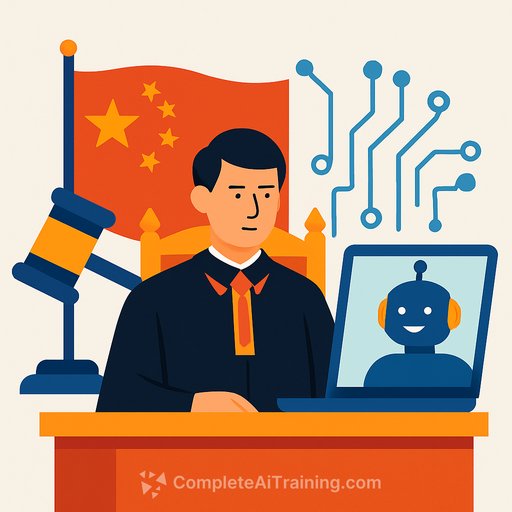Challenges in Handling AI-Related Cases at Beijing Internet Court
A senior judge from the Beijing Internet Court has highlighted the growing challenges in adjudicating cases related to artificial intelligence (AI). With an increasing number of disputes involving AI technologies, the court faces new legal questions and complexities. Many of these cases focus on issues such as copyright infringement, online liability, and service contract disputes.
At a recent press conference, Zhao Changxin, vice president of the Beijing Internet Court, emphasized that AI-related cases have surged in volume and complexity within China. This trend requires the court to develop clear approaches for fair and efficient resolution.
Adjudication Approach for AI Cases
The court is actively working on frameworks to address the unique challenges posed by AI in litigation. These include:
- Assessing the originality and ownership of AI-generated content
- Determining liability where AI systems are involved in online services
- Interpreting service contracts that include AI components or automated decision-making
These efforts aim to provide a consistent legal foundation for dealing with AI disputes, ensuring the protection of rights while fostering technological development within legal boundaries.
Policy Recommendations for Future AI Disputes
Zhao Changxin also suggested several policy recommendations to better manage AI-related legal issues going forward:
- Clearer guidelines on intellectual property rights concerning AI-generated works
- Enhanced regulations on liability allocation when AI systems cause harm or breach contracts
- Standardization of contracts involving AI services to reduce ambiguity
- Training for judges and legal professionals to keep pace with AI technology developments
These measures, if implemented, could simplify dispute resolution and reduce litigation risks as AI technologies continue to integrate into various sectors.
Implications for Legal Professionals
For lawyers and legal advisors working with AI-related issues, staying informed about evolving court practices and policy changes is essential. Understanding how courts are handling AI disputes helps in drafting clearer contracts and advising clients on risk management strategies.
Legal professionals interested in expanding their knowledge of AI and its legal implications may find it useful to explore specialized training. Resources like Complete AI Training's courses for legal professionals offer practical insights on AI technologies and their intersection with law.
As AI continues to influence various aspects of digital commerce and content creation, courts like Beijing’s provide important case studies on adapting legal frameworks to new technological realities.
Your membership also unlocks:






